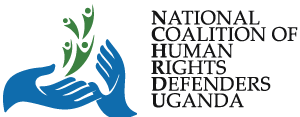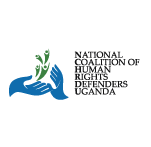- June 6, 2022
- Posted by: hrdcoalitionAdmin
- Category: TORs

TERMS OF REFERENCE FOR A CONSULTANCY
Development of an HRD threats and risk analysis report with trends of violations within the 6 (six) months.
About NCHRD-U.
The National Coalition of Human Rights Defenders Uganda (NCHRD-U) is a registered organization of various organizations and individual Human Rights Defenders (HRDs) that was formed in 2013. It seeks to strengthen the work of HRDs throughout the country through synergy and collaboration at national and international level to enhance the protection mechanisms for HRDs and their capacity to effectively defend human rights. NCHRD-U focuses its work in all regions in Uganda and partners with various entities in its work of protecting human rights defenders in a safe and secure manner. Further information about the Organization and what it does, can be found on our website: www.hrdcoalition.ug
Introduction
In the past years, the human rights context in Uganda has been characterized by an increased suppression of human rights defenders’ activities. Ironically, much of the violations have been at the hands of law enforcement agents who are supposed to be the legitimate protectors of citizen’s rights. The main rights that have been under suppression relate to the freedom of expression, and that of association, and peaceful assembly. Human Rights defenders derive their mandate from chapter four of the constitution of the Republic of Uganda that provides that fundamental rights and freedoms of individuals and organizations shall be respected, upheld and promoted by all government organs. Article one of the 1998 Universal declaration of human rights further stipulates that everyone has a right individually or in association with others to promote and strive for the realization of fundamental freedoms at national and international level.
With all the above mandate, Human rights defenders and Civil Society Organizations still face challenges as they pursue their duties, this is coupled by the shrinking operating environment challenges for civic space. The passing of regressive laws such as the public Order Management Act (POMA2013) that provides for the regulation of public meetings, duties and responsibilities of the police, organizers and participants in relation to public meetings. This law seeks to control rather than regulate public HRDs meetings and what is discussed therein, thereby curtailing free speech which is a key tenet in democracy building in the country
The NGO act 2016 that was established to foster a conducive working environment between CSOs and government but this has been otherwise.
The Access to Information Act (2005) although aimed at opening up the characteristically closed government, enhance transparency and also contribute to participatory government buttressed by an accountable government to the citizenry, HRDs especially journalists still found problems accessing information from government agencies yet article 41 of the Constitution of the Republic of Uganda provides for such access. The Anti-Money Laundering Act (2013) arising from a global drive to fight terrorism and extremism have also been unjustly used to further curtail the operations of mainly governance and human rights organisations and control citizens’ demand for accountability in the country.
The Penal Code Act (1950 amended in 2007) still holds provisions that continue to be employed by state agents in clamping down on freedom of expression and media rights. Some of the provisions have been used against journalists like Kankweza who tread and wrote about issues the State.
The suspension of DGF which facility was well known for its role in harmonizing and coordinating support to State and non-State partners to strength democracy, protect human rights, improve justice and enhance accountability in Uganda, was a huge blow to non-state actors especially HRDs who mostly received funding aimed at reaching out deep to HRDs who need support such as Legal, Medical and others. HRDs still face threats and risks without any without any hope of legal redress since the main funder was suspended.
On 20 August, the NGO Bureau, an official body responsible for regulating NGOs, ordered the immediate suspension of 54 organizations, claiming that they had failed to comply with NGO legislation, including by operating under expired permits, or by failing to file accounts or registering with the Bureau yet most of these organizations were not informed of the Bureau’s decision or given an opportunity to respond. This was aimed at further curtailing the work of HRDs to prevent them from fulfilling their civic duty of promoting and protecting human rights.
Also to note, HRDs working on issues of women, people with disabilities and LGBTIQ face different challenges that can pose them to high risks these bear a double brunt of being given lesser priority in the male dominated and homophobic society and also being handled by mostly male while handling their cases who often do not take into consideration the several difficulties they face by being women, PWDs and LGBTIQ HRDs.
Based on that, NCHRD-U seeks to hire a consultant to develop an HRD threats and risk analysis report with trends of violation within the six (6) months, generate two reports for every three months
Introduction to consultancy assignment:
The consultancy is geared towards gathering information on risks and threats faced by HRDs as a result of the restrictive environment that’s curtailing their freedoms, denying them access to information and leading to abuse of their rights. Thereafter the consultant will develop an HRD threats and risk analysis report. The report will be compiled in such a way that it trucks the first three months and then makes a comparative analysis with the next three months) with the different trends of violation within the six (6) months. The research will generate two reports, with both highlighting the different trends of violations.
Specific activities the consultant will perform:
- To monitor and conduct a threat and risk analysis with trends of violations against HRDs in the last six month the trend in violations, the consultant will generate a report for every three months period.
- To Develop an HRD threats and risk analysis report with trends of violations within the 6 (six) months.
- Conduct a validation workshop: The Consultant will design a one-day long validation workshop in light of study findings
- Reporting: The consultant will provide a detailed report of the Workshop. The report should contain details of the discussion, activities/mechanisms agreed by participants of each region, challenges, and recommendations.
Duration and Deliverables of the Consultancy
The key product will be a report with an analysis of HRD threats and risks with trends of violations within in the last six months.The total duration of this consultancy is 15 working days. Details are described in the table below:
| Activity | Deliverable | Duration | Remarks |
| Development of an HRD threats and risk analysis report with trends of violation within the six months. | A 2 reports summarising and analysing trends in threats, risks and violation against human rights defenders. | 12 days | The Consultant will use different methods to conduct the trend analysis. |
| Deliver/Conduct a validation Workshop | 1 day validation workshop | 1 day | The consultant will facilitate a validation meeting to share a first draft of the results. |
| Compile and submit the two final reports showing trends | Reports showing the threats and analysis trend of violation against HRDs. | 2 days | The consultant will be required to submit the final reports. |
Qualification and Skills Required:
- The applicant should have Master degree from a recognized university in the field of development studies, management, social science or other relevant fields.
- Minimum of seven years’ relevant experience. Previous experience working with/on civil society, research on Freedom of Information and Expression, Rights of Assembly and Association, Citizen Participation, Non-Discrimination and Inclusion, and Human Rights / Rule of Law.
- Strong diplomatic skills a high level of cultural sensitivity and familiarity with an international and/or regional work environment.
- An ability to work in and through networks and alliances
- An ability to work with diverse actors
- Fluency in English (written and verbal)
Consultation Fee:
The consultant cannot sub contract this assignment to any other person or organization. The consultant is required to deliver quality services as per the plan and in close coordination with relevant stakeholders. Please mention your proposed daily consultancy fee for this 20-day assignment in the cover letter, include a financial and technical proposal.
Application Process:
The consultant (s) should send the following information to [email protected] by 4pm on the 11th June 2022 or hand delivered to National Coalition of Human Rights Defenders-Uganda Plot 148, SEMAWATTA ROAD, NTINDA, KAMPALA with Reference; Consultancy NO. DCA/DIGITECH/2022. (Only shortlisted candidates will be contacted)
- A brief proposal of no more than 2 page indicating how they will approach the task as outlined and including 2 references – at least 1 of which needs to be an organisation that work has been done for in the last 12 months.
- At least 1 example of work completed in the last 12 months.
- A budget for the consultancy which outlines an overall cost and a daily cost.
- A brief profile/CV of the consultant(s) that will be responsible.
N.B. The winning proposal will be one that indicates an appropriate implementation model that is considerate of the current health situation in Uganda.

